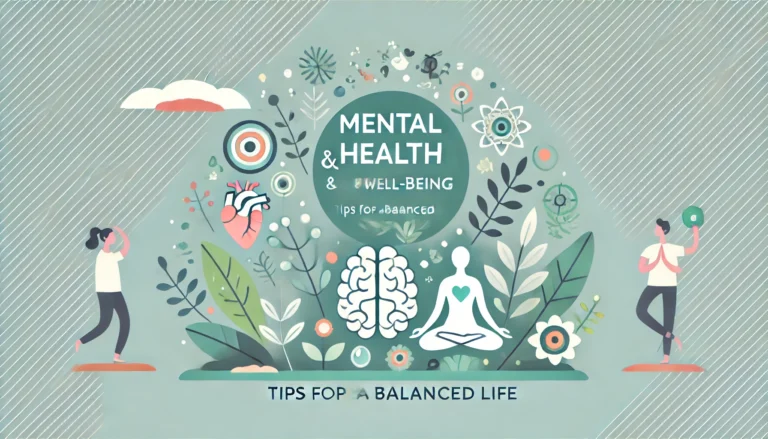Mental health and well-being are crucial aspects of our overall health. Just like physical health, maintaining good mental health is essential for leading a balanced, fulfilling life. In recent years, there has been a significant rise in awareness about mental health issues, yet many people still struggle to prioritize their mental well-being. In this post, we’ll explore why mental health matters, common challenges people face, and practical tips to enhance your mental well-being.
Why is Mental Health Important?
Mental health affects how we think, feel, and act in our daily lives. It influences our ability to cope with stress, overcome challenges, build relationships, and recover from life’s setbacks. When mental health is not in a good state, it can lead to various problems such as anxiety, depression, and even physical health issues. Maintaining good mental health not only improves our mood and productivity but also fosters stronger connections with others.
You can like this also: Work-Life Balance: Tips for a Healthier and Happier Lifestyle
Common Challenges Affecting Mental Health
Many factors can negatively impact mental health, and Tips for a Balanced Life such as:
- Stress and Anxiety: Prolonged stress from work, relationships, or finances can lead to anxiety and other mental health issues.
- Lack of Sleep: Poor sleep patterns can contribute to mood swings, irritability, and difficulty concentrating.
- Social Isolation: Limited social interaction or loneliness can increase the risk of depression and reduce overall happiness.
- Negative Thought Patterns: Constant self-criticism or pessimistic thinking can erode self-esteem and well-being.

Tips for Maintaining Mental Health and Well-Being
Taking care of your mental health should be a priority. Here are some practical tips to help you maintain good mental well-being:
- Practice Mindfulness and Meditation: Spend a few minutes each day practicing mindfulness or meditation. It can help reduce stress, increase focus, and promote emotional stability.
- Exercise Regularly: Physical activity is known to release endorphins, which improve mood and reduce stress. Aim for at least 30 minutes of moderate exercise most days of the week.
- Maintain a Healthy Diet: A balanced diet with fruits, vegetables, lean proteins, and whole grains can positively impact your mental health.
- Get Adequate Sleep: Prioritize good sleep hygiene by setting a consistent bedtime, avoiding screens before bed, and creating a relaxing nighttime routine.
- Connect with Others: Build and maintain strong relationships with friends and family. Social support can act as a buffer against mental health issues.
- Seek Professional Help: If you’re experiencing prolonged periods of anxiety, sadness, or any other mental health concerns, don’t hesitate to seek help from a therapist or counselor.
Conclusion
Taking care of your mental health is as important as taking care of your physical health. By incorporating small changes like practicing mindfulness, exercising, and seeking support, you can significantly improve your mental well-being and lead a happier, healthier life. Following simple Tips for a Balanced Life can help you manage stress, stay positive, and maintain emotional balance. Remember, it’s okay to ask for help when needed and prioritize your mental health every day.
Let’s all take a step toward better mental health and well-being!





Pingback: Why Pollution Increases in Winter and How to Protect Yourself - Blogger Bapu